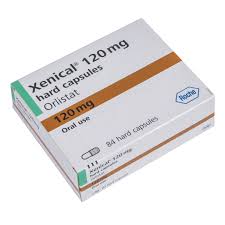Description
What Midora is used for
The name of your medicine is Midora. It contains the active ingredient called amisulpride. Midora belongs to a group of medicines called antipsychotics. Midora is used to treat symptoms of schizophrenia.
Schizophrenia is a condition which affects the way you think, feel and/or act. Schizophrenia may cause symptoms such as hallucinations (eg hearing, seeing or sensing things which are not there), delusions, unusual suspiciousness, emotional and social withdrawal. People with schizophrenia may also feel depressed, anxious or tense. Your doctor may have prescribed Midora for another reason. Ask your doctor if you have any questions about why Midora has been prescribed for you.
Before taking it
When you must not take it Do not take Midora if: • you have an ALLERGIC REACTION to Midora or any of the ingredients listed at the end of this leaflet. Signs of an allergic reaction may include a skin rash, itching, shortness of breath or swelling of the face, lips or tongue. • you are breastfeeding or plan to breastfeed • you are taking the following medicines – medicines used to treat irregular heart rhythm such as quinidine, disopyramide, amiodarone and sotalol – cisapride – antibiotics such as erythromycin and pentamidine, given as an injection into the veins – levodopa, a medicine used in Parkinson’s disease – thioridazone, an antipsychotic – methadone, medicine used to treat pain or addiction • the packaging is torn or shows signs of tampering or the tablets do not look quite right • the expiry date on the pack has passed. Do not take Midora if you have or have had any of the following medical conditions: • phaeochromocytoma, a rare tumour of the adrenal glands which sit near the kidneys • tumour of the pituitary gland, a small gland at the base of the brain • breast cancer • liver disease. Midora must not be taken by children up to the age of puberty. There is limited information on the use of Midora in adolescents and its use is not recommended from puberty to the age of 18 years. If you are not yet 18 years of age, ask your doctor if Midora is right for you. Before you start to take it Your doctor must know about all the following before you start to take Midora. Tell your doctor if: 1. you have had an allergic reaction to any medicine which you have taken previously to treat your current condition. 2. you are pregnant or intend to become pregnant. Midora is not recommended for use in pregnancy. If you need to take Midora during pregnancy you should discuss the benefits and risks of taking it with your doctor. 3. you suffer from lactose intolerance because Midora tablets contain lactose. 4. you have kidney or liver disease, Parkinson’s disease or fits (seizures). 5. you have problems with the heart and blood vessels. 6. you have, or have a history of blood clots 7. you have hyperglycaemia (high sugar levels in the blood). Your doctor may recommend monitoring your blood sugar levels while you are taking Midora. 8. you suffer from dementia
Taking other medicines
Tell your doctor or pharmacist if you are taking any other medicines, including any that you buy without a prescription from your pharmacy, supermarket or health food store. Some medicines and Midora may interfere with each other. These include: • other medicines used to treat heart problems such as diltiazem, verapamil, clonidine, digoxin and drugs known as beta blockers (e.g. propranolol) • intravenous amphotericin B, an anti-fungal given by injection into the veins • other antipsychotics such as thioridazine, chlorpromazine, trifluperazine, pimozide, haloperidol, imipramine and lithium • diuretics • stimulant laxatives • glucocorticosteroids • diagnostics drugs such as tetracosactides • medicines taken for anxiety or to help you sleep • medicines taken for depression • some strong pain killers • antihistamines, medicines to treat allergies, which cause drowsiness • some medicines taken to control blood pressure.
How to take it. How much to take.
Your doctor will tell you how many Midora tablets you should take, or the amount of Midora Solution you should take. The dosage is adjusted for each individual and can range from 50mg a day up to 800mg a day. In some cases your doctor may increase the dose to 1200mg a day. When taking Midora Solution, the dosage syringe supplied should be used to measure the correct dose. Each 1mL marking is equal to 100mg. After introducing the measuring syringe into the bottle, draw the plunger of the measuring syringe up to the graduation mark corresponding to the number of milligrams to be administered. Midora tablets and Midora Solution should be taken once or twice a day as advised by your doctor. Your doctor may increase or decrease your dose depending on your condition. Do not take more than the dose your doctor has recommended.
How to take it
Midora tablets should be swallowed whole with a glass of water. Midora Solution is swallowed. It may be mixed with water if preferred.
When to take it
Midora tablets and Midora Solution should preferably be taken before meals. Take your prescribed dose at about the same time each day.
How long do I take it
It is important that you do NOT stop taking Midora unless your doctor tells you. Do not stop taking your Midora just because you feel better. It is very important to continue Midora because it will help you stay well.
If you forget to take it
If you forget to take your medicine, take your dose as soon as you remember. Do not take a double dose to make up for the dose that you missed.
If you take too much (overdose)
Immediately telephone your doctor or the Poisons Information Centre , or go to Accident and Emergency at your nearest hospital, if you think that you or anyone else may have taken too much Midora. Show the doctor your pack of tablets or bottle. Do this even if there are no signs of discomfort or poisoning. If you have taken too much Midora, the most common signs are drowsiness and slurred speech.
While you are using it
Things you must do It is very important to continue taking Midora because it will help you stay well. Tell all doctors, dentists and pharmacists who are treating you that you are taking Midora. While you are taking Midora, tell your doctor or pharmacist before you start any new medicine. Things to be careful of Midora may cause drowsiness in some people. Be careful driving or operating machinery until you know how Midora affects you. Be careful if you are elderly or unwell. Some people may experience side effects such as drowsiness, confusion, dizziness and unsteadiness, which may increase the risk of a fall. The effects of alcohol could be made worse while taking Midora. It is NOT recommended that you drink alcohol while taking Midora. Be careful while taking antihistamines, sleeping tablets or tablets to relieve pain while taking this medicine. Midora can increase drowsiness caused by medicines affecting your nervous system.
Things you must NOT do
Do not drive or operate machinery until you know how Midora affects you. Do not give Midora to anyone else. Your doctor has prescribed it for you and your condition.
Side Effects
Tell your doctor or pharmacist as soon as possible if you do not feel well while you are taking Midora. Like other medicines, Midora can cause some side effects. If they occur, most are likely to be minor and temporary. However, some may be serious and may need medical attention. Some of the side effects are dose related, so it is important that you never exceed your prescribed dose.
Tell your doctor if you notice any of the following and they worry you: • drowsiness • weight gain • dizziness • increased appetite • constipation • dry mouth • insomnia • anxiety • agitation These are the most common side effects of Midora. Some people may feel dizzy in the early stages of treatment, especially when getting up from a lying or sitting position. This side effect usually passes after taking Midora for a few days. Sometimes trembling, noticeable muscle stiffness or spasm, slowness of movement, excess saliva, restlessness, an overwhelming urge to move and either distress or movements such as pacing, swinging of the legs while seated, rocking from foot to foot, or both can occur. This will usually be reduced if your dose of Midora is lowered by your doctor or if your doctor prescribes you an additional medicine.
Tell your doctor immediately or go to Accident and Emergency at your nearest hospital if you notice any of the following: • muscle twitching • abnormal movements mainly of the face or tongue • fever • faster breathing • sweating • muscle stiffness. If this occurs, stop taking Midora immediately and contact your doctor. After prolonged use in women, medicines of this type can cause: • breast pain • milk secretion • an absence of their monthly period • changes in the regularity of their periods. Tell your doctor if your monthly periods are absent for six months or more. After prolonged use in men, medicines of this type can cause breast enlargement or impotence. Incidences of abnormal liver function have been occasionally reported. Do not be alarmed by this list of possible side effects. You may not experience any of them. Tell your doctor if you notice any symptoms that worry you, even if you think the problems are not connected with the medicine or are not listed in this leaflet.
Storage
Keep your tablets in the blister pack until it is time to take them. If you take the tablets out of the blister pack they may not keep well. Keep Midora tablets in a cool, dry place where the temperature stays below 30°C. Do not store Midora or any other medicine in the bathroom or near a sink. Do not leave it in the car or on window sills. Heat and dampness can destroy some medicines. Keep it where children cannot reach it. A locked cupboard at least one-anda- half metres above the ground is a good place to store medicines. There will be an expiry date (month, year) on your Midora container. The medicine should not be taken after this date.





Reviews
There are no reviews yet.